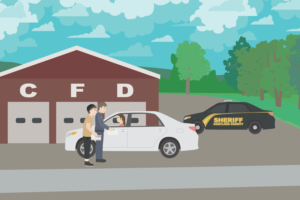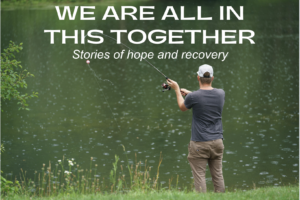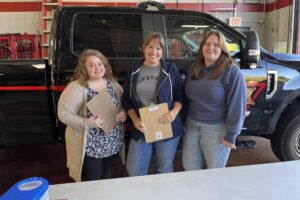On Overdose Awareness Day, Cortland Remembers those Lost to Opioids and Celebrates Launch of HEALing Communities Study
Every day, over 130 people die from opioid overdoses. Cortland is taking action to change that.
Today is International Overdose Awareness Day, a global event held on 31 August each year. It aims to raise awareness of overdose and reduce the stigma of a drug-related death. It also acknowledges the grief felt by families and friends remembering those who have died or had a permanent injury as a result of drug overdose. On average, 130 Americans die every day from an opioid overdose(1). In Cortland County, anywhere from 8 to 13 deaths are attributed to opioids each year (2015-2019)(2). The dark reality is that overdose is now the leading cause of death for Americans under 50 and it has surpassed peak numbers of car crash, HIV and gun deaths per year. Cortland has been working hard to change this.
For years, community agencies have partnered on prescription drug disposal events, opioid overdose prevention (Narcan) trainings and other strategies. Cortland Area Communities That Care and Cortland County Mental Health are excited to announce a new initiative that will enhance the work already being done and work to implement innovative strategies to bring about transformation in the healthcare, justice and social service sectors. Cortland County, along with 15 other communities across New York State, is participating in the HEALing Communities Study with the goal of reducing opioid deaths by 40% over three years. Cortland County is one of 67 communities in four states that were selected to take part in this ground-breaking $350 million National Institutes of Health funded study.
Columbia University was awarded $86 million to lead the research effort among the 16 participating communities in New York where 3,224 people died in 2017 of overdoses involving opioids. Communities which experience many opioid overdose deaths were chosen, with a focus on rural communities, to test evidence-based practices and reduce the stigma of opioid use disorder and treatment. All participating communities are at the leading edge of this life-saving national initiative and stand to benefit from its outcomes.
“Most of us know someone who has been impacted by this issue in some way. The Healing Cortland team is excited to bring the community together to work to improve the lives of those impacted and prevent future overdose deaths,” said Sara Watrous, Project Director for the HEALing Communities Study in Cortland County, “In the past three months we have had over 60 conversations with various stakeholders across the community, collected data and have begun convening different groups to make improvements and implement evidence-based strategies that can reduce opioid deaths.”
The project also plans to bring hope. The good news is that addiction is treatable; people can recover from opioid use disorder. But we have to realize that just like with any other chronic disease, it is a long-term illness with no definite cure that requires ongoing medical care. If we treat opioid use disorder the way we treat other diseases — with compassion and continuous care — we can turn the tide.
To learn more about Healing Cortland and to stay connected or get involved, visit: healingcortland.org.
On Overdose Awareness Day we especially want to remember those lost to overdose and their families and friends. Prevention Network and the Central Region Addiction Resource Center have partnered to create a remembrance video of those lost. We recognize their strength and courage for sharing their story at a time when there continues to be so much stigma around addiction and overdose. Please share and help us raise awareness that addiction affects individuals, families, friends, and our community as a whole.
Dean O’Gorman, a member of the HEALing Communities Advisory Board said: ”It took losing my son to really understand the importance of Narcan. Do not let losing a loved one, that you may not know is struggling or in need of help, be how you learn about the importance of Narcan.” His son Spencer passed away in 2017 due to an overdose when Narcan was not administered in time. Dean did not know he was struggling with addiction and through his passing has become a big advocate for Narcan and has also created support groups for parents who have lost a child to overdose.
We encourage everyone to reflect on how they can take action to address the overdose crisis in our community. Reach out to the HEALing Communities staff, if you are interested in learning more or getting involved.
- CDC: https://www.cdc.gov/injury/features/prescription-drug-overdose/index.html#:~:text=In%202017%2C%20more%20than%2070%2C000,day%20from%20an%20opioid%20overdose.
- Data from Cortland County Medical Advisor





